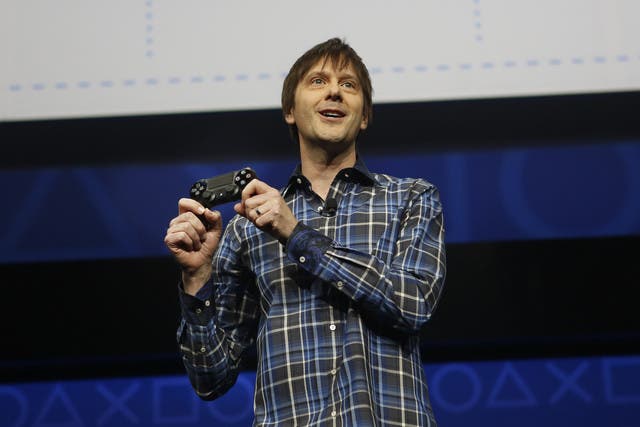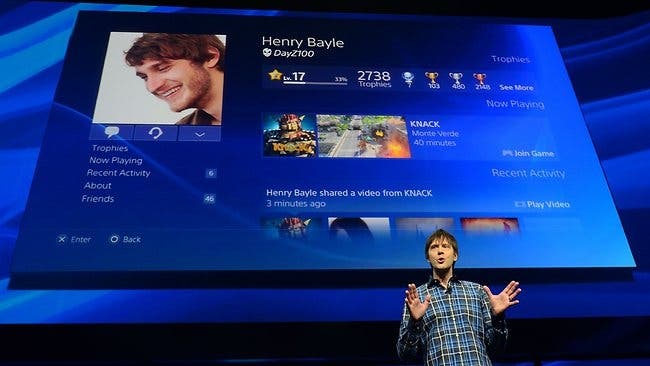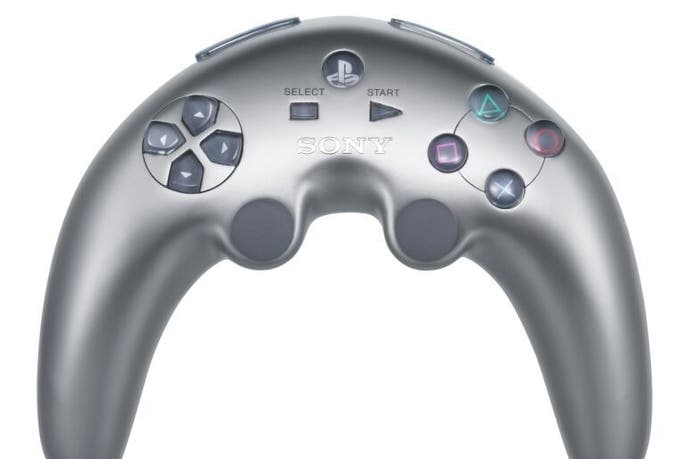Thoughts from New York: PlayStation 4 feels less visionary than its predecessor
"Consumer centric and developer inspired."
"Consumer centric and developer inspired." We heard those five words a lot last night, as Sony finally broke its silence and announced PlayStation 4 at a glitzy launch event in freezing New York City. I heard those five words so much that at one point the notes I was taking on my laptop descend into a paragraph of that one phrase copied and pasted about 15 times in succession. They are interesting words. And they are words that transmit so much of what is right about PlayStation 4 - but also what is wrong about it.
Let's start with some background, because it can be easy to lose perspective when you have your face pressed up against the glass of a console unveiling, as I know only too well from experience. In my view, the great challenge for PlayStation 4 is that, on the one hand, it no longer has the advantages that existed in previous generations, while on the other it is simultaneously coming under extraordinary pressure by external forces that didn't even exist then.
In the days of PS2, nobody else was making consumer electronics that made you feel cool and counter-cultural; now even your fridge probably had a walk-on role in Blade Runner. In the days of PS2 and PS3, DVD and Blu-ray movie players were cutting edge right at the point consumers started to look for them at attractive price points; these days physical media barely warrants a mention at a console launch press conference (although PS4 does have a Blu-ray drive - I checked), leaving PS4 without a technological killer app. And while DLC exclusivity is still there to be fought over, nobody - not even Microsoft - can afford to buy up top franchises like Assassin's Creed, Grand Theft Auto and Call of Duty exclusively in a way platform holders once did.
As for the pressure from external forces, it must be absolutely crushing. Got a spare £500? If you had it spare any time over the last few years, maybe you've already spent it - on a smartphone, a full-size tablet, a 7-inch tablet, a weightless solid-state laptop or, more likely, several of these things and possibly even several of the same thing, bought at intervals as their manufacturers revised and hastened and elongated and brightened them to make them more attractive. And you've certainly spent some of that money on gaming in forms that were previously unimaginable - digital sales, micro-transactions, and even those little bits of DLC that give you more in-game credits. Because somebody is buying that stuff or they'd stop doing it.
Imagine sitting down to design PlayStation 4 knowing all of that was going on. How did they even get Mark Cerny in the door? Was he drunk?
"In the days of PS2, nobody else was making consumer electronics that made you feel cool and counter-cultural; now even your fridge probably had a walk-on role in Blade Runner."

"Consumer centric and developer inspired." They hammered this home constantly during the PlayStation 4 conference. It has to be instant-on, because that is what consumers and developers expect. It has to do all its updates in the background and pre-load content based on behavioural monitoring, because that is what consumers and developers expect. It has to have great sharing features, because that is what consumers and developers expect. I sat down with Herman Hulst from Guerrilla Games and Matt Southern from Evolution Studios after the conference and they told me they lobbied for a headphone jack on the controller: because that is what consumers and developers expect.
To satisfy both groups elegantly and to help everyone connected with PS4 understand what they are pushing towards, Mark Cerny and his team chose five principles that captured the spirit of this endeavour: Simple, Immediate, Social, Integrated, Personalised. Every feature that flowed from those principles would be "thoughtfully engineered by Sony", said SCE big boss Andrew House, and they were all "consumer centric and developer inspired".
Who could fault any of that? Sure, some of it is only unique now, in February 2013, probably at least nine months before PS4 is on the market, and none of it may be unique by the end of the year. Durango may have some or all of these features. PC developers could code them up pretty quickly - they are all built on mature concepts like video streaming, instant-on and social networking, which have prospered everywhere else outside console gaming in the last few years of the PS3 and Xbox 360 lifecycles. But it's all good stuff. So is giving developers self-publishing options and being flexible about how software makers apply new business models. These are all things that consumers and developers expect and I don't have a problem with giving people what they want.
All the same, the PS4 conference left me underwhelmed and a little concerned for Sony, a company I really admire for the creative soul it has underneath all the usual corporate bluster. My question going in to the conference was whether Sony could produce a console that was both unique and compelling, because PlayStation Vita and its market position and external forces - not to mention Nintendo's similar struggles with Wii U - suggested Sony might struggle with the 'compelling' part. But I at least expected the 'unique' part to be beyond debate. Because that's what Sony does: it makes unique and visionary hardware.
"Ken Kutaragi didn't sit around wondering what consumers and developers wanted; he worked out what they didn't even know they needed and then went out and built that."

Except that's not what we have here, or at least not yet. PS4 has some neat features, but as Sony itself was at pains to point out, it's a PC in a box with some service-level differentiation. And that's the real problem with "consumer centric and developer inspired". That's an admirable thing to put near to the heart of your strategy, but surely it's a secondary focus rather than the core? Ken Kutaragi didn't sit around wondering what consumers and developers wanted; he worked out what they didn't even know they needed and then went out and built that. As Sony itself pointed out during the PS4 conference, consumers and developers can't see the future. That's Sony's job. Or it was.
Despite my concerns, there are great things to come from PS4. Of course there are. OK, last night we saw action game sequels, a racing game and some tech demos that echoed much of a past we already know too well, but this is a company that allows its top development talent to hand its mature IP off to other studios in order to invent new concepts on a regular basis. It's a company that didn't just publish Heavy Rain, Journey and Unfinished Swan - among many other leftfield games on PS3 - but also spent millions marketing them. There will be wonderful, unique and passionate games on PS4 and in the long run those are the things we will remember. The rest of this is just 'inside baseball' - if PS4 sells 30 million units or 130 million units, it hopefully won't have too much of an impact on any of the stuff you and I deeply care about and want to see, although we'll still spend the next 10 years bitching about it.
Console launch events are brilliant pageantry and wonderful fun. How I pity creative industries that don't have this stuff. And they do matter a little bit. But they can be undone, or redone, and companies like Sony surge from success to failure to success again within days. As I sit here typing, my inbox and Twitter feeds are full of people praising Sony for not blocking pre-owned game usage, something that - according to my sources - it wasn't ever planning to do anyway. Next week maybe they'll give away everyone's passwords again and we'll be back to the other extreme. But the only real proof is in how many people go to the tills for the next decade, and that's something we may only be able to talk about with certainty and perspective the next time I'm in freezing New York in some distant future typing up another PlayStation unveiling.
But with all that said, as an admirer of visionary hardware engineering and someone who has always looked to Sony Computer Entertainment to chart its own path, I feel a little downcast this morning, and I write this with hope that there is more still to be revealed that can bring my chin back up again. I don't just want my games to be mysterious, inspiring and revolutionary; I want my hardware to do that as well, and so far with PlayStation 4 I'm not seeing it.
P.S. Another thing that is swirling around my inbox this morning is a tweet from Larry Hryb at Xbox having a little dig at last night's performance. "Announce a console without actually showing a console? That's one approach," he zinged. Sure Larry. And another approach is to launch a console with a 68 per cent failure rate. Be still. We'll get to you soon enough.




-3-31-23-screenshot.png?width=291&height=164&fit=crop&quality=80&format=jpg&auto=webp)




